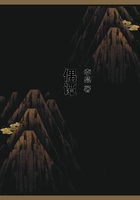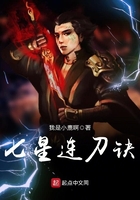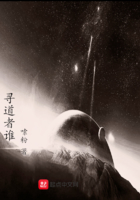In olden times the Noblesse had held their land by feudal tenure, and were liable to be ejected as soon as they did not fulfil their obligations to the State. These obligations had been long since abolished, and the feudal tenure transformed into an unconditional right of property, but the peasants clung to the old ideas in a way that strikingly illustrates the vitality of deep-rooted popular conceptions. In their minds the proprietors were merely temporary occupants, who were allowed by the Tsar to exact labour and dues from the serfs. What, then, was Emancipation? Certainly the abolition of all obligatory labour and money dues, and perhaps the complete ejectment of the proprietors. On this latter point there was a difference of opinion. All assumed, as a matter of course, that the Communal land would remain the property of the Commune, but it was not so clear what would be done with the rest of the estate. Some thought that it would be retained by the proprietor, but very many believed that all the land would be given to the Communes. In this way the Emancipation would be in accordance with historical right and with the material advantage of the peasantry, for whose exclusive benefit, it was assumed, the reform had been undertaken.
Instead of this the peasants found that they were still to pay dues, even for the Communal land which they regarded as unquestionably their own. So at least said the expounders of the law. But the thing was incredible. Either the proprietors must be concealing or misinterpreting the law, or this was merely a preparatory measure, which would be followed by the real Emancipation. Thus were awakened among the peasantry a spirit of mistrust and suspicion and a widespread belief that there would be a second Imperial Manifesto, by which all the land would be divided and all the dues abolished.
On the nobles the Manifesto made a very different impression. The fact that they were to be entrusted with the putting of the law into execution, and the flattering allusions made to the spirit of generous self-sacrifice which they had exhibited, kindled amongst them enthusiasm enough to make them forget for a time their just grievances and their hostility towards the bureaucracy. They found that the conditions on which the Emancipation was effected were by no means so ruinous as they had anticipated; and the Emperor's appeal to their generosity and patriotism made many of them throw themselves with ardour into the important task confided to them.
Unfortunately they could not at once begin the work. The law had been so hurried through the last stages that the preparations for putting it into execution were by no means complete when the Manifesto was published. The task of regulating the future relations between the proprietors and the peasantry was entrusted to local proprietors in each district, who were to be called Arbiters of the Peace (Mirovuiye Posredniki); but three months elapsed before these Arbiters could be appointed. During that time there was no one to explain the law to the peasants and settle the disputes between them and the proprietors; and the consequence of this was that many cases of insubordination and disorder occurred.
The muzhik naturally imagined that, as soon as the Tsar said he was free, he was no longer obliged to work for his old master--that all obligatory labour ceased as soon as the Manifesto was read. In vain the proprietor endeavoured to convince him that, in regard to labour, the old relations must continue, as the law enjoined, until a new arrangement had been made. To all explanations and exhortations he turned a deaf ear, and to the efforts of the rural police he too often opposed a dogged, passive resistance.
In many cases the simple appearance of the higher authorities sufficed to restore order, for the presence of one of the Tsar's servants convinced many that the order to work for the present as formerly was not a mere invention of the proprietors. But not infrequently the birch had to be applied. Indeed, I am inclined to believe, from the numerous descriptions of this time which I
received from eye-witnesses, that rarely, if ever, had the serfs seen and experienced so much flogging as during these first three months after their liberation. Sometimes even the troops had to be called out, and on three occasions they fired on the peasants with ball cartridge. In the most serious case, where a young peasant had set up for a prophet and declared that the Emancipation Law was a forgery, fifty-one peasants were killed and seventy-seven were more or less seriously wounded. In spite of these lamentable incidents, there was nothing which even the most violent alarmist could dignify with the name of an insurrection. Nowhere was there anything that could be called organised resistance. Even in the case above alluded to, the three thousand peasants on whom the troops fired were entirely unarmed, made no attempt to resist, and dispersed in the utmost haste as soon as they discovered that they were being shot down. Had the military authorities shown a little more judgment, tact, and patience, the history of the Emancipation would not have been stained even with those three solitary cases of unnecessary bloodshed.
This interregnum between the eras of serfage and liberty was brought to an end by the appointment of the Arbiters of the Peace.















